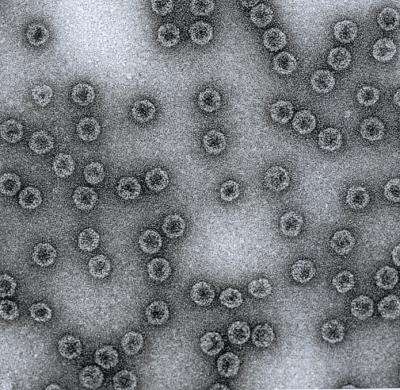First influenza vaccine brought to clinical testing

Singapore's Agency for Science, Technology and Research (A*STAR) and Switzerland's Cytos Biotechnology AG today announced that the first healthy volunteer has been dosed in a Phase 1 clinical trial with their H1N1 influenza vaccine candidate based on Cytos' proprietary bacteriophage Qbeta virus-like particle (VLP) technology. In this first Phase 1 clinical trial, the safety and immunogenicity of this novel vaccine candidate and its potential to protect against H1N1 influenza infection will be evaluated.
A*STAR is developing the vaccine candidate under a collaborative research, development and commercialization agreement entered into with Cytos in 2010, with the goal of providing the government of Singapore an effective means of combatting influenza epidemics and pandemics. Under the agreement, Cytos retains the worldwide right to develop and commercialize the vaccine candidate globally, while A*STAR subsidiaries will have the right to develop and commercialize the vaccine for Singapore and other ASEAN countries and can earn royalties on worldwide net sales.
Mr Lim Chuan Poh, Chairman of A*STAR and Co-Chair of the Biomedical Sciences Executive Committee in Singapore said, "This is the first time Singapore is attempting to make its own flu vaccine. In the wake of the recent H7N9 bird flu outbreak, it is timely that A*STAR is bringing Singapore's first H1N1 flu vaccine into Phase 1 clinical trial. This different approach of making flu vaccines will better respond to the needs of a flu outbreak. I am pleased that the collaboration with Cytos is making a meaningful contribution to Singapore's pandemic readiness, a critical aspect of our national security. The success of this potential vaccine will be of significant impact not only to the region but also the world."
Christian Itin, PhD, Chairman and Chief Executive Officer of Cytos, commented, "We are very pleased with the fruitful collaboration which has led to the clinical start of this novel influenza vaccine. This is an important milestone for the program and the first clinical program using Cytos' B-cell vaccine platform for a prophylactic vaccine against an infectious disease."
Professor Alex Matter, Chief Executive Officer of D3 (Drug Discovery and Development) and A*STAR's Experimental Therapeutics Centre (ETC) said, "If this VLP-vaccine strategy proves to be effective, it can accelerate the production of vaccines against new emerging strains of flu. This will greatly aid Singapore's preparedness to produce vaccines quickly, safely and economically in the event of a flu epidemic. This could potentially open doors for faster production of vaccines to a range of viral diseases as well."
A*STAR's Experimental Therapeutics Centre (ETC) was the primary driver of the multi-institutional effort culminating in the start of the clinical development program, which involved academic and clinical partners across Singapore, namely A*STAR's Singapore Immunology Network (SIgN), DSO National Laboratories and Duke-NUS Graduate Medical School. Since early 2012, D3, which works hand in hand with Cytos and other local entities, has been leading the development of the H1N1 influenza vaccine project aiming to achieve proof-of-concept in humans. This Phase 1 clinical trial is being conducted at the SingHealth Investigational Medicine Unit and the Changi General Hospital Trials and Research unit in Singapore.

















